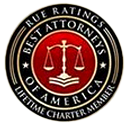Stairwell fall injuries are under the umbrella of premises liability cases. The property owner, or the person who has control of the property, could be liable to pay you compensation. The prerequisite is that you prove that they were to blame for the accident. If you cannot prove liability, you will not be able to get a settlement check.
The slip and fall attorneys in Philadelphia at Gibbons & Crichton, Personal Injury and Accident Lawyers can investigate your accident and assemble the case from the available evidence that could get you a check for your injuries.
Common Causes of Stairwell Falls
According to the American Journal of Emergency Medicine, roughly one million Americans are injured each year in stairwell falls. These types of falls are among the most common personal injuries in the country.
Stairwell falls can be caused by:
- Slippery stairs
- Broken stairs
- Defective banisters
- Loose carpeting
- Poor lighting
- Uneven stairs
Stairwell Defects vs. Dangerous Conditions
Some stairwell falls are caused by defects. For example, the banisters themselves may not have been properly constructed for safe use. For example, the banisters may not have been installed close enough to the top of the steps. The stairs may be open on one side, not providing you with enough fall protection.
On the other hand, the landlord or company controlling the building could be responsible for the accident. They must inspect and maintain the property. If they notice any dangerous conditions on the stairs, they must take action to fix them.
Your attorney would investigate the cause of your accident and help determine whether you should sue the contractor or landlord (or both of them).
Common Stairwell Fall Injuries
An accidental fall down a stairwell can make any part of your body suffer a hard impact. Since you may fall down many stairs at once, you may injure multiple parts of your body at once.
Common stairwell fall injuries include:
- Sprains and strains
- Soft tissue injuries
- Fractures and broken bones
- Traumatic brain injuries
- Spinal cord injuries
- Neck and back injuries
No matter how much the insurance company tries to minimize your injuries, it is never “just a fall.” Flights of stairs can be 15-20 feet, and they encompass many different stairs.
Many people are never the same again after a stairwell fall. Those who can fully recover may only do so after a long period of recovery.
What You Need to Prove to Win a Stairwell Fall Claim or Lawsuit
To win a stairwell fall lawsuit, you must show that someone was negligent. In most cases, you would file your case against the property owner. Your burden of proof is similar to the one you must carry in any type of slip and fall case.
The property owner or landlord has two main requirements:
- They must not create any dangerous conditions on the property themselves
- If someone else creates the dangerous condition, the property owner must fix it within a reasonable period after they knew or should have known about it
The property owner must inspect the stairwells at reasonable intervals and repair any dangerous conditions that they may find. For example, if there was a carpet tear on the stairs, the owner would need to repair or replace the carpet. They cannot let the condition sit there for months.
In a stairwell fall case, your challenge is proving what the property owner knew or should have known. You can start with maintenance logs, but these are not always easy to obtain. You may also need pictures or proof that shows that the dangerous condition was there for some time.
You can be certain that the insurance company is always going to deny a stairwell fall case when they are able. They may blame your fall on you, or they may deny that their policyholder was responsible. Either way, you may be in for a fight with any type of slip and fall case.
If your claim states there was a defect with the stairs, you may need to show how they were not properly designed or constructed. Your claim would be against the architect who designed the property or the contractor who built it.
Compensation for Falling Down Stairs
If your stairwell fall claim is successful, you could receive the following damages:
- The complete costs of your medical care
- Lost wages for time missed from work
- Pain and suffering
- Loss of enjoyment of life
- Scarring and disfigurement
- Embarrassment and humiliation
The insurance company is never going to give you all the money you deserve without a fight. We will gladly have that fight on your behalf, so you can get full and fair compensation. We know how much your claim is worth, and we do not rest until you are in the best position possible to get it.
Contact a Philadelphia Slip and Fall Accident Lawyer Today
If you have been hurt in a stairwell fall, you must get immediate legal representation. Our experienced attorneys at Gibbons & Crichton, Personal Injury and Accident Lawyers know the personal injury system in and out. We know how to remove the red tape that the insurance company is trying to put in your way. We do not let anything stand between our clients and full financial compensation. We offer free consultations to prospective clients.
Call us today at 215-274-0173 or send us a message online to speak with an attorney. You do not owe us a penny unless we can help you obtain a settlement check or a jury award.














